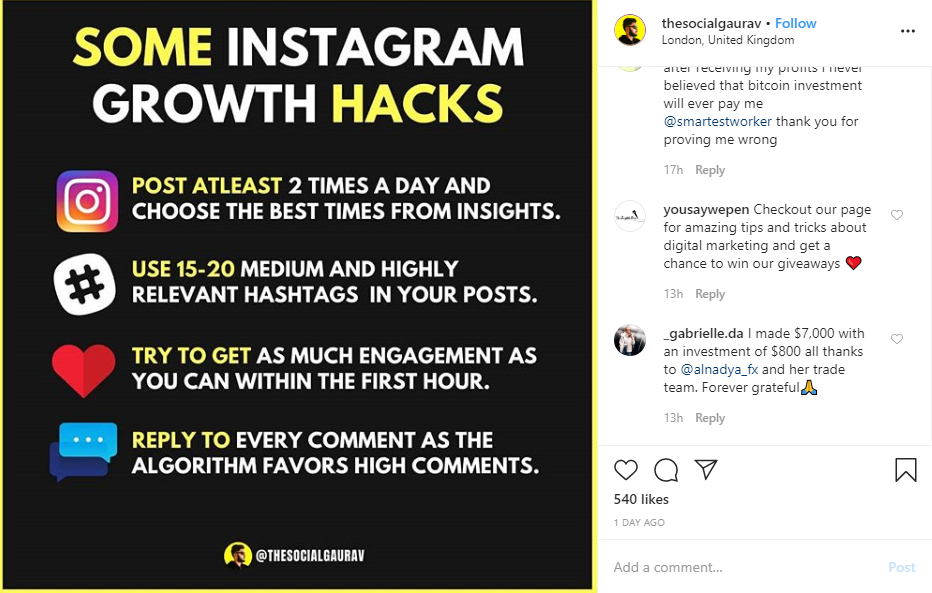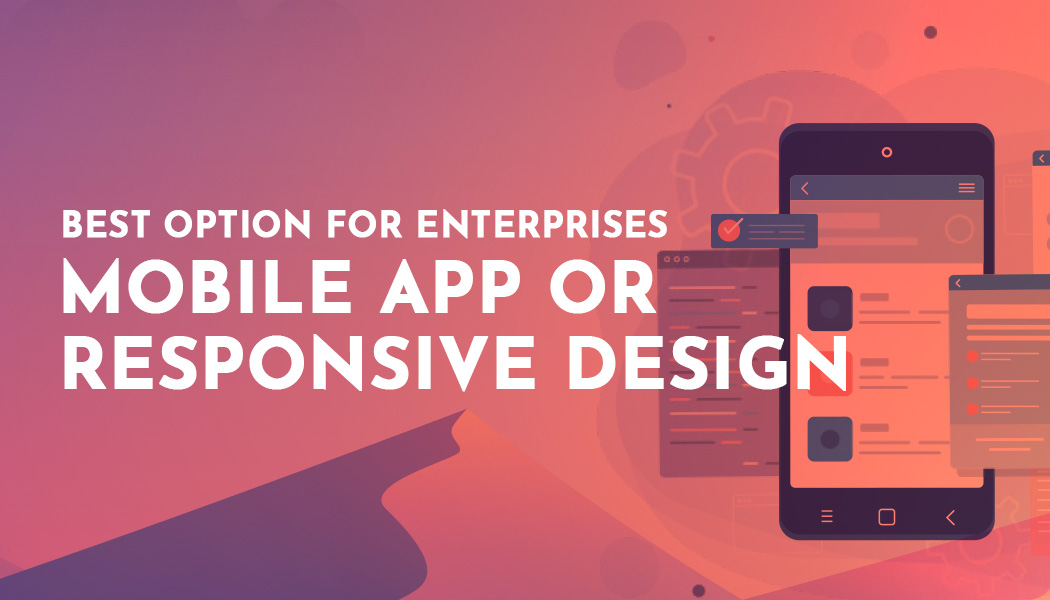Best Option for Enterprises: Mobile App or Responsive Design?
The evolution of the smartphone is remarkable! Currently, out of every 10 people - 8 people are operating smartphones in their daily routine. This response of people has attracted businesses to move online. But yet there is a dilemma!
Which one to choose from? A Responsive website design or A Mobile application?
Today, most of the web traffic is generated through mobile usage. This shows how mobile phones have made their place in the hearts of people. If we consider the current scenario of people spending time on mobile apps or websites - Mobile app usage is 87% whereas mobile website usage is 13%.
The difference says it all!
But simply by observing the statistics doesn’t justify the answer.
Let’s take a peek on what exactly is the difference between responsive design and mobile application.
The mobile app is one sort of a software application that can be downloaded from various stores and installed on the device. It is created keeping in mind a specific motto for the end-users. In a nutshell, a mobile app is a handy web app, which doesn’t need a browser to operate.
Whereas, a responsive website works differently. It is an on-going website optimized for smartphones and other smart devices. It can be accessed from various cellular platforms like Android, Windows, iPhone and more. Its key benefit is - can easily access different web pages from a single browser.
This might have given you an overview of how they both are different, but what makes them efficient at use?
A Deep Study on Mobile Apps
If kept in simple words, the definition of a mobile app is to download it from the App Store or Google Play and install it on your device. But with the simple installation, this app is more responsive and faster as compared to mobile websites.
Taking about the usage, the below stated 2019 statista will help you get a clear idea.

Hence, this shows how mobile apps have impacted today’s trend. We can say that users have experienced a lot more than just benefits.
Customized App for the End Users:
One of the biggest benefits of the mobile app is customization. Once the app is downloaded and installed, the mobile app allows users to set up their preferences. The apps work in offering customized updates and recommendations to make the app run faster. Even some applications generate feeds based on the interest of the user.
Say, for example: Let’s take Instagram as the app. We all know how Instagram operates. Once you create your account and start surfing, the app itself assumes your interest and starts showing results related to your previous search.
If you are following social media pages, then Instagram will show feeds related to social media like,


It is not wrong to say that customization helps in getting/using most out of the application.
Increase in User engagement Ratio:
What is required to get hooked with an app? The various ways of engagement are the answer!
These days, mobile application development is considered to be a greater platform for increasing their engagement in social media. Looking at the specific images or texts is an old school method as people want something new. And with the help of mobile application people can easily share their views and perceptions. This in return increases social media engagement and helps in creating an individual identity.
For example, Apps like Facebook, Instagram, etc. You can browse independently but if you want to post anything on that platform, you can only operate it through the specific app.
You Can Work Offline:
Not all apps require internet access. Many mobile apps offer the ability to work offline, yet many apps require internet connectivity but with this flaw they also offer certain functionality and content that can be used by users offline. This feature helps users to operate any time and anywhere without internet connectivity.
A Deep Study on Responsive Mobile Website
Unlike any other website, a responsive website consists of a set of interconnected HTML pages that can be opened through any browser.
But what differentiates it?
The responsive mobile website is designed to adapt the content rendered on the variety of mobile screen sizes. The core idea behind designing a responsive website is to offer the end-users a perfect experience regardless of any device they are using.
In short, it helps in saving time for resizing manually to view any content.
Here are certain benefits that prove helpful for businesses and users in many ways:
Low Cost & Faster Development:
When compared, creating a responsive website is less costly than creating a mobile app. Well, it consumes less time in developing when compared to the mobile app.
And when it comes to maintenance and app development costs, a separate app requires more support and testing. Having two different strategies i.e. desktop and mobile sites also need two design teams, content strategies and more. On the other hand, a responsive website design follows the concept of “one-stop solution”.
Higher Conversion Ratio:
What is essential for increasing the user’s experience on your website? Well, a lower bounce rate and spending more time on your website does!
No matter the conversion is through signing newsletters or making a purchase, achieving the user’s trust for your website will help you get growth. With adopting a responsive website design, it tends users to read the website pages and explore more what you’ve offered!
The Final Call!
With the observation of more time spent on mobile apps, the statistics that proves a gradual increase to 3.8 billion globally by 2021 is forecast. Hence, according to the numbers, mobile applications are winning this trend.
However, the correct choice of deploying a mobile app or a responsive web design depends upon your customers/users. If your end-users are more inclined using mobile-friendly content then opting a mobile website is the right alternative. Whereas your users believe in engaging on social media platforms and different communities, then a mobile app is an accurate choice!
Both have their benefits and strategies, yet adapting the one, which increases your visitor’s interest and trust should be the best option for your business.




